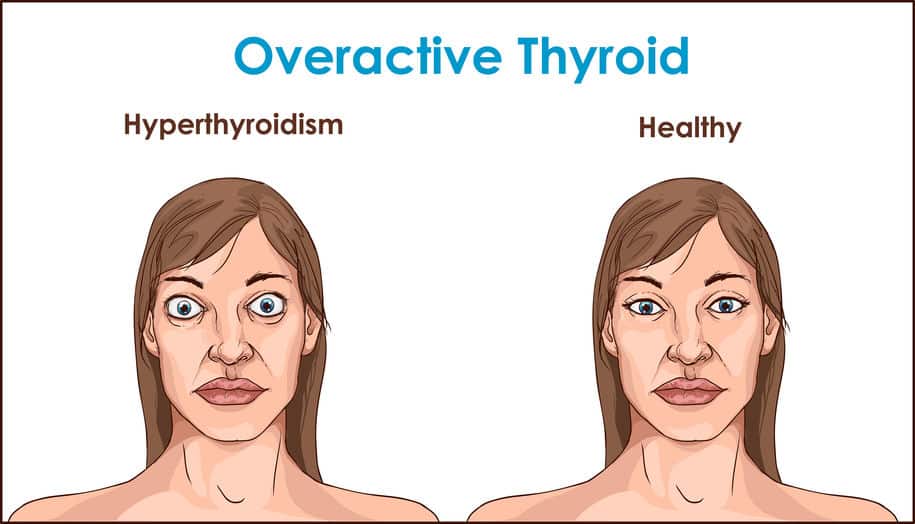Thyroid Disease
Thyroid Disease
You’ve likely come across the term “thyroid gland,” but do you understand its significance? Often, we don’t pay much attention to it unless an issue arises. However, gaining knowledge about your thyroid can prove invaluable in recognizing potential problems and seeking timely treatment.
The thyroid gland is a vital part of your body, and understanding its functions can empower you to take charge of your health. If you encounter any concerns related to your thyroid, seeking medical attention promptly can make a significant difference in managing potential issues effectively. At Agape Family Medical Center, we are here to provide the necessary support, guidance, and treatment when it comes to thyroid-related matters. Let us help you stay informed and take proactive steps towards your well-being.

Information about the Thyroid.
These systems speed up as thyroid levels rise.
Through the hormones it produces, the thyroid influences almost all of the important processes in your body, including breathing, heart rate, digestion and temperature.
Both hypothyroidism and hyperthyroidism can be treated.

Information about the Thyroid
The functioning of various body systems accelerates as thyroid hormone levels rise. However, imbalances in thyroid hormone production, whether excessive or insufficient, can lead to significant issues. When the thyroid is not functioning optimally, it can cause a range of problems, impacting your weight, energy levels, digestion, and mood.
Located at the front of the neck, close to the area of the Adam’s apple, the thyroid plays a crucial role in regulating various bodily functions. It tends to be larger in women and may increase in size during pregnancy.
If the thyroid gland produces an excessive amount of hormones, the condition is referred to as hyperthyroidism. Conversely, hypothyroidism occurs when the gland fails to produce enough hormones. Both hyperthyroidism and hypothyroidism can affect multiple body systems, leading to various symptoms and health concerns.
The good news is that problems with the thyroid can be treated effectively. At Agape Family Medical Center, we specialize in thyroid health and provide comprehensive care to address any thyroid-related issues. Whether it’s hyperthyroidism or hypothyroidism, our experienced team is here to offer support, diagnosis, and personalized treatment plans tailored to your unique needs. We are dedicated to helping you achieve optimal thyroid function and overall well-being.
Hyperthyroidism
If you have hyperthyroidism, it means your thyroid is overactive and produces too much of a hormone called thyroxine. If can speed up your metabolism and cause unpleasant symptoms, including:
- Feelings of anxiousness
- Mood swings
- Exhaustion
- Sensitivity to temperatures
- An enlarged thyroid
- Sudden weight loss
- Rapid heart beat
- Increased use of the bathroom
- Sleep problems
- Shaking in hands and fingers
- Changes in your hair
- Changes in your menstrual cycle

Hypothyroidism
Hypothyroidism, also known as underactive thyroid disease, is a prevalent disorder characterized by insufficient production of thyroid hormone by the thyroid gland. In many cases, the thyroid gland becomes inflamed, leading to this condition. Several factors can contribute to its development, such as certain medications, viral infections, radiation therapy in the neck area, thyroid surgery, inadequate dietary iodine, pituitary gland disorders, or an autoimmune disorder called Hashimoto’s thyroiditis.
Hypothyroidism can give rise to a range of symptoms and health issues, affecting various bodily functions. At Agape Family Medical Center, we specialize in diagnosing and treating thyroid disorders, including hypothyroidism. Our team of experienced medical professionals will work closely with you to assess your condition, identify contributing factors, and design personalized treatment plans to help you manage hypothyroidism effectively. Our goal is to improve your thyroid health and overall well-being, ensuring you receive the best care and support throughout your journey to optimal health.
Hypothyroidism
Women are at a higher risk of developing hypothyroidism, as are people who have a close family member with an autoimmune disease. Other risk factors include:
Other risk factors :
• Race (Caucasian and Asian, especially)
• Age
• Prematurely graying hair.
Other risk factors :
• Autoimmune disorders, including type 1 diabetes, rheumatoid arthritis, celiac disease, Addison’s disease, vitiligo
• Bipolar disorder
• Down syndrome
• Turner syndrome
Symptoms may include:
• Changes in your menstrual cycle
• Constipation
• Depression
• Dry skin and hair loss
Symptoms may include:
• Fatigue
• Sensitivities to temperature
• Unexplained weight gain or difficulty losing weight
• Slower heart rate
• Carpal tunnel syndrome
Treatments for Thyroid Disorders
Although the effects of a thyroid condition can be unpleasant, most thyroid problems can be managed well if properly diagnosed and treated. Your doctor may prescribe medication or recommend surgery depending on your condition.




